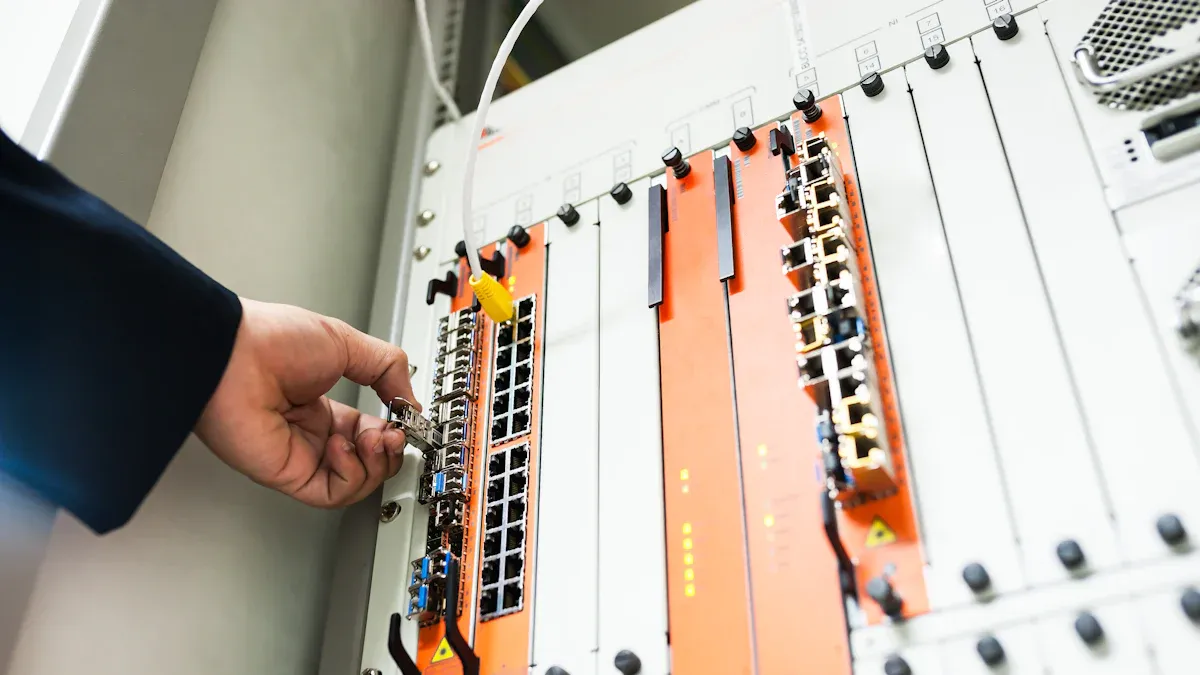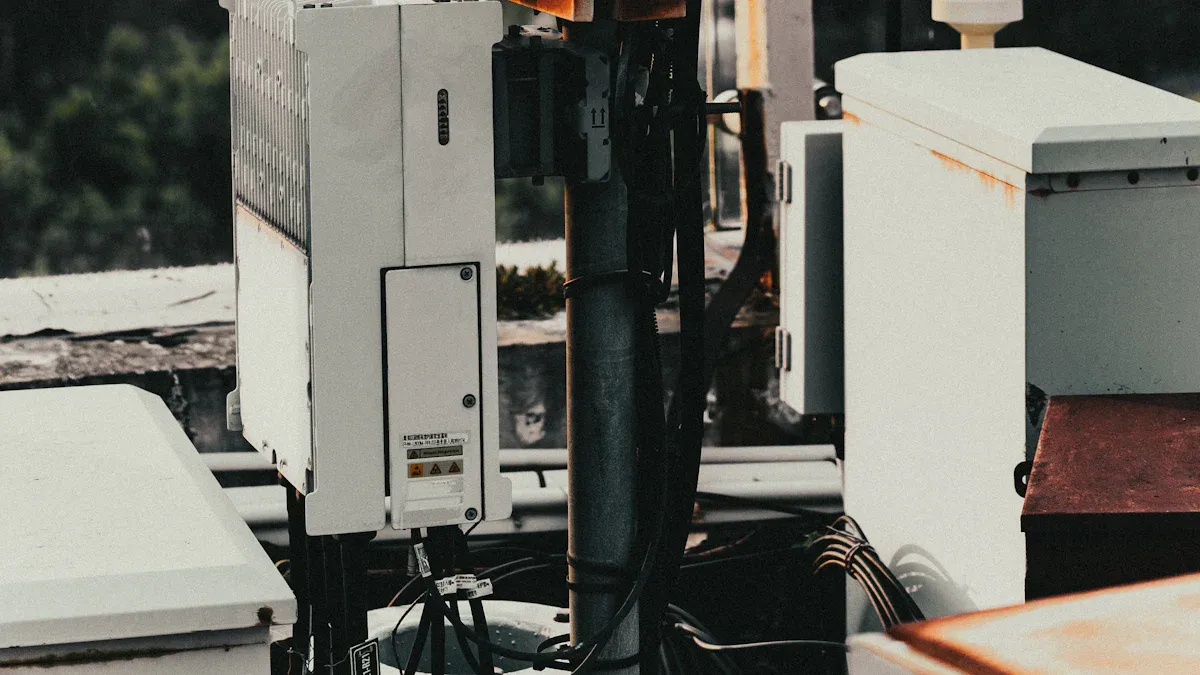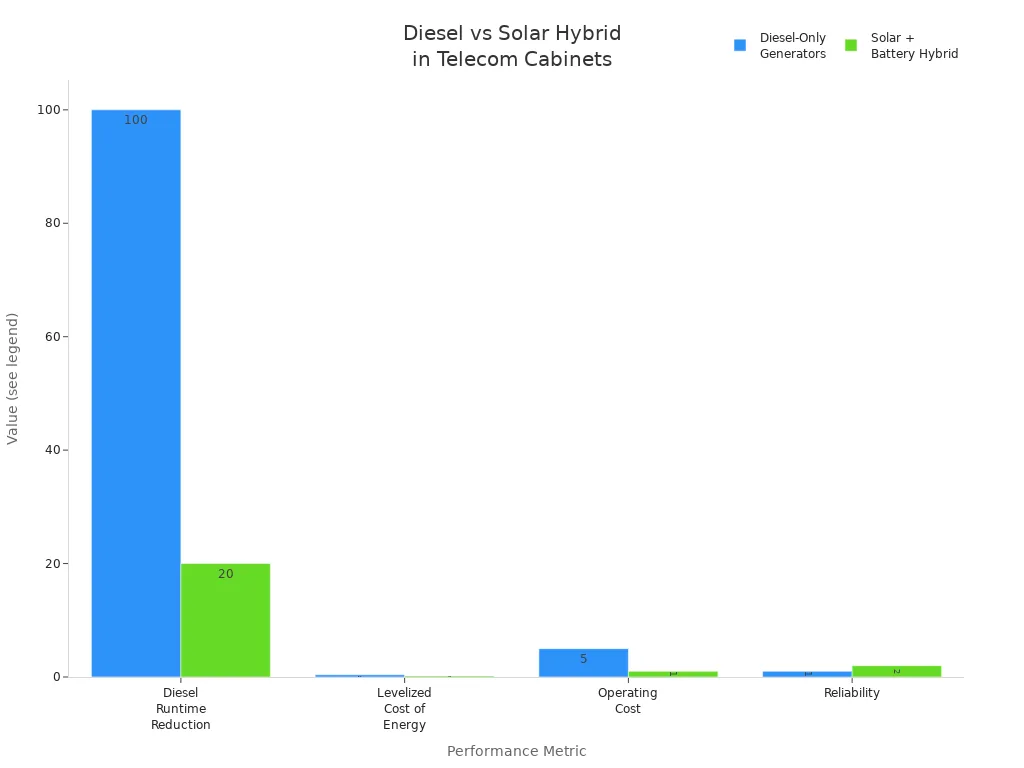Why Solar Modules Are Essential for Telecom Cabinets: 3 Key Roles in Enhancing Power Reliability & Reducing Grid Dependence

Telecom operators face frequent power disruptions from grid failures, natural disasters, and equipment malfunctions. Solar modules now play a critical role in addressing these challenges by delivering a decentralized and sustainable electricity source. Operators benefit from lower energy costs, fewer maintenance visits, and improved uptime. The market for solar-powered telecom cabinets continues to grow, driven by the need for resilient and efficient infrastructure. These advantages make solar modules essential for reliable telecom operations and environmental responsibility.
Key Takeaways
Solar modules provide reliable, uninterrupted power to telecom cabinets, even during grid failures or in remote locations.
Using solar power reduces energy costs and cuts diesel fuel use, saving money and lowering maintenance needs.
Solar-powered systems support environmental goals by cutting carbon emissions and reducing noise and air pollution.
Smart energy management and battery storage improve power efficiency and help telecom networks recover faster during outages.
Decentralized solar power strengthens grid stability and ensures continuous communication during emergencies.
Solar Modules for Uninterrupted Power

Continuous Operation
Telecom cabinets require a stable power supply to ensure network reliability. Solar modules provide a dependable energy source that keeps equipment running even when the grid fails. Operators achieve continuous operation by matching voltage and current between solar panels, batteries, and telecom cabinets. This careful integration prevents equipment damage and maximizes backup efficiency. Advanced charge controllers, such as those using Maximum Power Point Tracking (MPPT), optimize energy harvest from solar panels, delivering consistent power output despite changing weather. Battery Management Systems (BMS) monitor battery health, protecting against overcharging, deep discharge, and overheating. Proper enclosure design, including separate battery compartments and ventilation, shields sensitive components from environmental hazards. Real-time remote monitoring systems track power status and battery condition, allowing early detection of issues and reducing downtime.
Note: Solarcraft’s rugged enclosures and uninterrupted power systems further enhance reliability, ensuring telecom operations continue without interruption during power disturbances.
Grid Outage Protection
Solar modules offer a robust solution for telecom cabinets during grid outages. Unlike traditional diesel generators, solar-powered backup systems switch to battery power within milliseconds, maintaining seamless operation. These systems operate silently and reduce greenhouse gas emissions, supporting sustainability goals. Operators benefit from lower operational and maintenance costs, as solar systems require only periodic cleaning and inspection. Modular and scalable designs allow easy expansion to meet growing infrastructure needs. Studies in regions with weak grid infrastructure show that hybrid solar systems significantly reduce diesel use and grid consumption, improving reliability and reducing costs.
Solar modules provide a decentralized power supply, reducing the risk of outages.
Advanced components like MPPT controllers and hybrid battery systems increase efficiency.
Solar power delivers stable energy, extending telecom equipment lifespan.
Remote Site Support
Many telecom sites operate in remote or off-grid locations where grid power is unreliable or unavailable. Solar modules enable continuous service in these challenging environments. Case studies from rural regions and deserts demonstrate that solar-powered telecom towers improve network reliability and reduce operational costs. Companies like SunWize and Vertiv have deployed solar solutions that offer 24/7 power, with battery backup lasting several days during poor weather. These systems withstand harsh conditions such as flooding, dust, and extreme temperatures. By integrating solar modules with energy storage, operators ensure uninterrupted connectivity and rapid deployment, even in the most demanding locations.
Energy storage systems play a vital role in stabilizing power supply. They store excess solar energy during the day and release it at night or during cloudy periods, balancing supply and demand. Battery management and power conversion systems ensure efficient charging and discharging, maintaining power quality and reliability. This integration reduces dependence on fossil fuels and supports long-term sustainability for telecom infrastructure.
Cost & Grid Savings

Lower Energy Costs
Telecom operators face rising energy expenses, especially in remote or off-grid locations. Solar modules offer a practical solution by generating electricity on-site, which reduces reliance on expensive grid power and diesel fuel. Operators who switch to solar-powered cabinets often see up to 47% savings on annual operational expenditures. Overall operating costs can drop by as much as 40%. Hybrid solar-diesel systems cut generator runtime by up to 80%, leading to fuel consumption reductions of up to 68%. These savings protect operators from future increases in fuel and electricity prices, ensuring long-term financial stability.
Payback periods for photovoltaic panel investments typically range from three to five years. After this period, ongoing savings directly improve profitability.
Reduced Diesel Use
Traditional telecom cabinets depend heavily on diesel generators, which require frequent refueling and regular maintenance. By integrating solar modules with battery storage, operators can reduce generator use by over 90%. This shift not only lowers fuel and maintenance costs but also minimizes the risk of service interruptions caused by fuel supply disruptions. The following table highlights the impact of solar and battery hybrid systems compared to diesel-only generators:
Metric | Diesel-Only Generators | Solar + Battery Hybrid |
|---|---|---|
Diesel Runtime Reduction | Baseline (100%) | Over 80% reduction; zero runtime under normal conditions |
Levelized Cost of Energy | ~$0.40+ per kWh | ~$0.18 per kWh |
Payback Period | N/A | 4–6 years |
Fuel Logistics | 5–10 trips/month | Minimal; diesel only as rare backup |
Operating Cost | High | Significantly lower |
Reliability | Vulnerable | Improved with solar and battery backup |

Decentralized Power
Solar modules support decentralized energy systems, which are essential for telecom sites in areas with unreliable grid access. By generating power locally, operators avoid the logistical challenges of fuel transportation and storage. Solar-powered systems have fewer moving parts, which decreases mechanical failures and reduces maintenance requirements. Maintenance cost reductions can reach up to 49% compared to diesel generators. Energy consumption drops by about 30%, and the cost per kilowatt-hour falls from $0.734 with diesel to $0.1716 with solar. These benefits make solar-powered telecom cabinets a reliable and cost-effective choice for both urban and remote deployments.
Resilience & Sustainability
Grid Stability
Telecom networks demand high reliability, especially during emergencies or extreme weather. Solar modules enhance grid stability by providing localized power through microgrids and distributed energy resources. These systems reduce dependence on traditional grid power and diesel generators, ensuring telecom cabinets remain operational during outages. Modern grid technologies, such as smart grids and advanced energy storage, manage power fluctuations and improve load management. This integration increases electricity supply efficiency and supports continuous service, even when the main grid fails. Microgrids with solar and battery storage supply backup power to telecom sites, reducing the risk of widespread communication outages. Grid resilience becomes critical for disaster response, making solar-powered telecom infrastructure a strategic choice for operators.
Emissions Reduction
Operators face growing pressure to reduce their environmental impact. Solar modules offer a practical solution by replacing diesel generators and fossil fuel-based electricity. Scientific studies show that solar photovoltaic hybrid systems can cut CO2 emissions by 55% for existing telecom towers. With full 5G adoption, emissions reductions can reach 58%. These reductions help operators meet regulatory requirements and align with international climate initiatives. The following table highlights how leading telecom operators leverage solar power to achieve sustainability targets:
Telecom Operator | Sustainability Initiative | Impact on Environmental Targets |
|---|---|---|
T-Mobile | 100% renewable energy by 2022 | Major reduction in carbon emissions |
Vodafone | 100% renewable energy in Europe | Significant carbon footprint reduction |
du | Solar on Tower Project | 3,750 tons CO2 cut annually |
Verizon | 50% renewable electricity by 2025 | Expected major emissions drop |
Solar-powered telecom cabinets also avoid the environmental disruption of grid expansion in remote areas. By converting sunlight directly into DC power, these systems lower maintenance needs and extend equipment life.
Smart Energy Management
Smart energy management systems maximize the benefits of solar modules in telecom cabinets. Solutions like the ESTEL Smart Microgrid-Integrated Telecom Cabinet Energy Storage System combine solar and wind energy with real-time monitoring, predictive analytics, and intelligent load balancing. These features allow operators to prioritize critical loads, optimize energy use, and extend battery life. In disaster scenarios, smart systems restore communication services up to 50% faster than diesel-based solutions. Smart inverters and microinverters further enhance performance by enabling panel-level monitoring, fault detection, and maximum power point tracking. These technologies ensure reliable, efficient power supply and support seamless integration with renewable energy.

Hybrid renewable systems reduce harmful emissions and noise pollution, improving air quality and public health for workers and nearby communities. Operators report fewer health complaints and better community well-being after switching to solar-powered solutions.
Telecom operators choose solar integration for three key reasons:
It ensures reliable backup power and reduces downtime, even in remote areas.
It lowers operational costs by cutting fuel use and maintenance needs.
It supports sustainability by reducing carbon emissions and reliance on fossil fuels.
Benefit | Impact |
|---|---|
Reliability | 25% less downtime, stable network operation |
Cost Savings | Up to 64% annual backup power savings |
Sustainability | 100 tons less CO₂ emissions per year |
Operators who invest in solar solutions future-proof their networks, support growth, and meet environmental goals.
FAQ
Why do telecom operators prefer solar modules over diesel generators?
Solar modules offer lower operating costs, reduced maintenance, and improved reliability. Operators choose solar to avoid fuel logistics and frequent breakdowns. Solar systems also support sustainability goals and help meet regulatory requirements for emissions reduction.
Why are solar modules critical for remote telecom sites?
Remote sites often lack reliable grid access. Solar modules provide consistent power, enabling uninterrupted service. Operators use solar to avoid costly fuel transport and ensure network uptime in challenging environments.
Why does integrating energy storage with solar modules matter?
Energy storage systems balance supply and demand. They store excess solar energy for use during nighttime or cloudy periods. Operators rely on this integration to maintain stable power and prevent service interruptions.
Why do solar-powered telecom cabinets improve public health?
Solar modules eliminate harmful emissions and noise from diesel generators. Communities near telecom sites experience better air quality and fewer health complaints. Operators report improved worker safety and community well-being.
Why should telecom operators invest in smart energy management for solar systems?
Smart energy management optimizes power use and extends battery life. Operators benefit from real-time monitoring, predictive analytics, and faster recovery during outages. These systems maximize the value of solar investments and support reliable network operations.
See Also
Steps To Guarantee Consistent Power For Telecom Cabinets
Solar Energy Storage Solutions Designed For Telecom Cabinets
Exploring The Function Of Outdoor Cabinets In Telecom Networks
Latest Innovations Shaping Outdoor Telecom Cabinet Technology
Integrated Solar Inverter And Battery Systems For Telecom Cabinets
CALL US DIRECTLY
86-13752765943
3A-8, SHUIWAN 1979 SQUARE (PHASE II), NO.111, TAIZI ROAD,SHUIWAN COMMUNITY, ZHAOSHANG STREET, NANSHAN DISTRICT, SHENZHEN, GUANGDONG, CHINA

